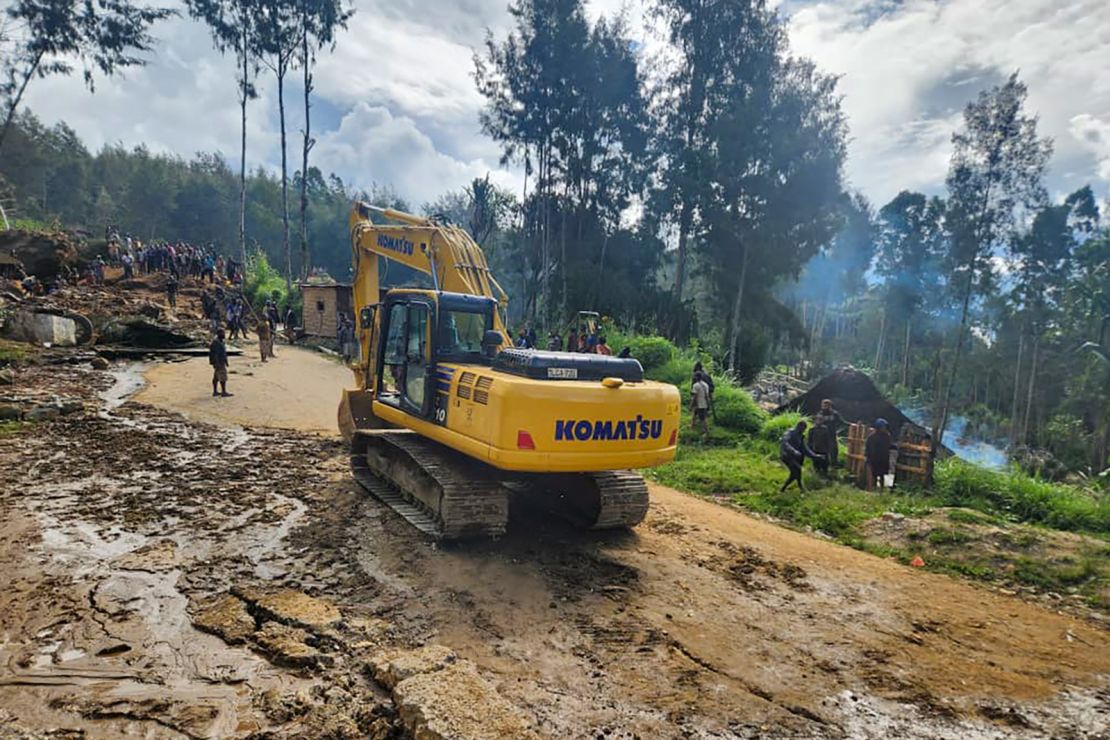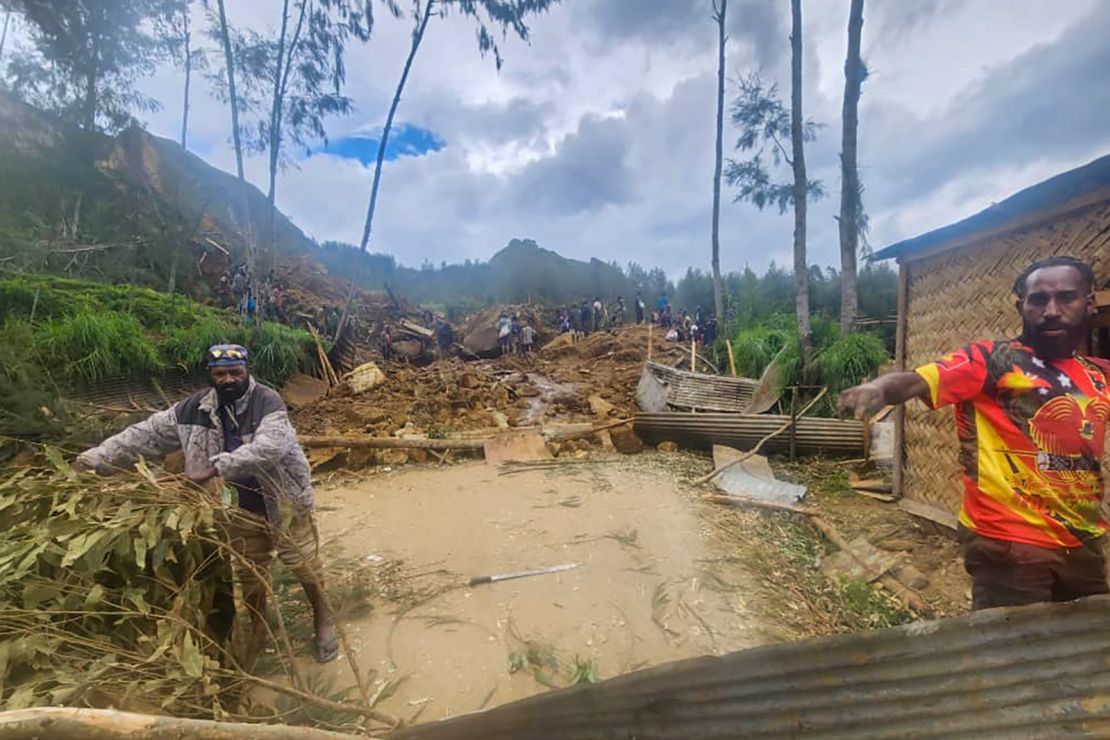CNN
—
More than 670 people are feared dead following a devastating landslide in a remote region in northern Papua New Guinea, a UN official said, as rescuers continue to scramble to find survivors.
More than 150 houses in Yambali village are buried in debris, Chief of Mission for the International Organization for Migration (IOM) in the country Serhan Aktoprak said on Sunday.
The new estimate is a sharp increase from earlier in the week, when the UN initially said it believed more than 100 people had died.
The population of the village was first reported to be about 4,000 people, but new estimates found the actual number of residents to be much higher, Aktoprak added.
More than 250 houses have been evacuated with an estimated 1,250 people displaced, and many locals have taken up temporary accommodation with relatives and friends nearby, according to the official.

The area continues to pose an “extreme risk” as rocks continue to fall and the ground soil is exposed to a constant increased pressure, Aktoprak said. People are removing bodies buried under the soil with digging sticks, spades, and agricultural forks, he added.
The disaster hit the remote village of Kaokalam, about 600 kilometers (372 miles) northwest of the capital Port Moresby, at approximately 3 a.m. local time on Friday, leaving a scar of debris that humanitarian workers say is as big as four football pitches.
Footage of the aftermath carried by AFP showed a wide scar of mud and rocks on a steep mountainside slope and locals clambering to look for survivors.

A Pacific nation home to around 10 million people, Papua New Guinea is rich in resources. But its economy has long trailed those of its neighbors, and it has one of the highest crime rates in the world.
Hundreds of tribes are spread across the country’s remote and often inaccessible terrain. But its vast and diverse mountainous landscape, as well as a lack of roads, has made it difficult and costly to upgrade basic services like water, electricity and sanitation.
This is a developing story and will be updated.










